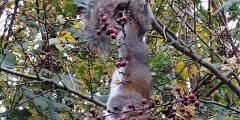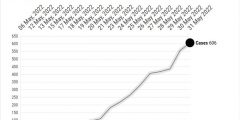Milk, reservoirs and spillovers: Bird flu in cows
May 10, 2024
On 26 April my sister emailed me from the United States and said “I might have to go over to oat milk”. She was alarmed by reports that bits of bird flu virus had been found in pasteurised milk. She has not gone over to oat milk yet. It seems that there is almost no …
Vaccine hesitancy in Europe: A conceptual exploration
March 22, 2024
Many things changed rather fast when the Covid-19 pandemic spread around the world at the beginning of 2020. There were new social phenomena, like ‘social distancing’, a so-called non-pharmaceutical intervention intended to stop the spread of the coronavirus. There were new scientific and bodily phenomena, like quickly developed vaccines, so-called pharmaceutical interventions intended to stop …
Bird flu – then and now
February 17, 2023
Current news about a world-wide bird flu outbreak brought back memories of 2005, dubbed then “The year of bird flu”. In an article I co-authored that year with Christopher Halliday, we noted that “[l]ately, fear of disease has been fuelled yet again by the emergence of a new highly pathogenic virus strain of avian influenza …
Science, communication, politics and power
September 2, 2022
I haven’t written about science communication for a while. It’s a thorny subject. But a few days ago, Ken Rice posted some musings on science communication which made me think. He argues that when ‘we’ (I suppose he means individuals or nations or indeed policy makers) don’t “deal with various societal problems as well as …
Poxpics: The visual discourse of monkeypox
August 14, 2022
Last week I talked about the coronavirus as an invisible killer and discussed some shortcomings of that metaphor. However, despite the nefarious uses of that metaphor, we should not forget that the coronavirus IS indeed an invisible threat and can be an invisible killer; no way around it. It wafts through the air unseen and …
Monkeypox
June 3, 2022
I recently saw these stats (as of May 31, 2022, there are 606 cases of Monkeypox worldwide, with the UK having 190, Spain 136, and Portugal 100) and this graph (see featured image). And I thought: Should I write something about monkeypox? Then I thought: Why not, just to get things straight in my head. …









